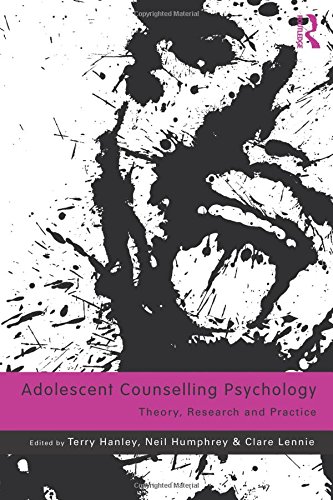

Most ebook files are in PDF format, so you can easily read them using various software such as Foxit Reader or directly on the Google Chrome browser.
Some ebook files are released by publishers in other formats such as .awz, .mobi, .epub, .fb2, etc. You may need to install specific software to read these formats on mobile/PC, such as Calibre.
Please read the tutorial at this link: https://ebookbell.com/faq
We offer FREE conversion to the popular formats you request; however, this may take some time. Therefore, right after payment, please email us, and we will try to provide the service as quickly as possible.
For some exceptional file formats or broken links (if any), please refrain from opening any disputes. Instead, email us first, and we will try to assist within a maximum of 6 hours.
EbookBell Team

4.3
38 reviewsAdolescent Counselling Psychology: Theory Research and Practice provides a thorough introduction to therapeutic practice with young people. As an edited text, it brings together some of the leading authorities on such work into one digestible volume.
The text is divided into three major sections.The first provides a context to therapeutic work with young people. This outlines the historical background to such work, the types of settings in which individuals work and the allied professions that they will encounter. Following on from this, the second section introduces the psychology of adolescence and provides an overview of the research into youth counselling. Finally, the third section considers more applied issues. Initially the infrastructure of counselling services is discussed before moving on to reflect upon pluralistic therapeutic practice. To end, the ways in which outcomes may be assessed in such work are described.
In covering such a wide territory this text acts as an essential resource to practicing counselling psychologists and other mental health professionals. It provides a foundation to the work that individuals are undertaking in this arena and advocates that individuals enter into therapeutic work in a critically informed way. At the heart of such considerations is the need to utilise psychological theory alongside research findings to inform therapeutic decision making.